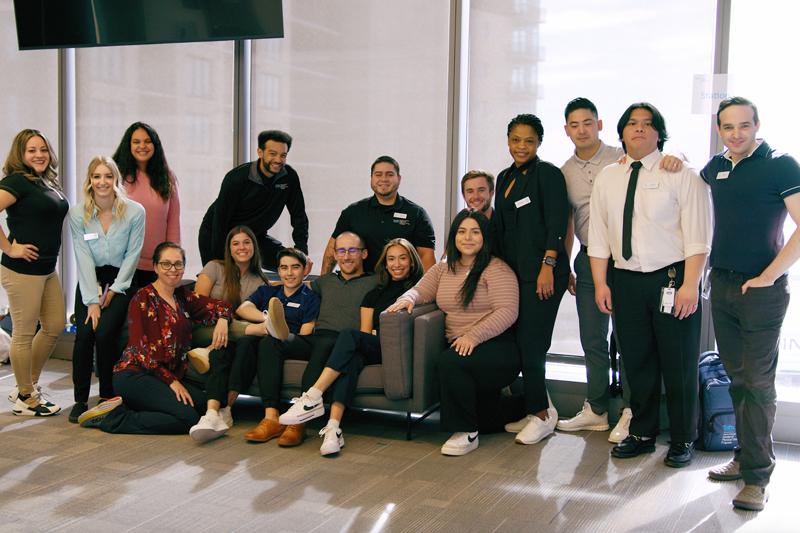DPT-Boston
Before beginning the program, Tufts DPT students are matched with their academic coach and begin building relationships. This intentional pairing of academic coaches and students provides an intimate, supportive, and collaborative community throughout the program. Academic coaches foster team building through the discovery of individual and group strengths and characteristics. Coaching teams and individual students explore how these traits can be leveraged to promote collaborative success. Coaches meet with their students individually and in groups both formally and informally across the program. Academic coaches and coaching groups serve as a consistent resource for students.
DPT-Phoenix
As part of the DPT program in Phoenix, students are placed into learning communities, which are intentionally constructed to enhance the student experience, maximize learning, and create longitudinal relationships with faculty and peers. Tufts DPT students in the Phoenix program will be placed into their learning communities prior to orientation. Within each learning community, students in their first year will be assigned a faculty coach and will meet throughout the program individually and as a group to foster a supportive community.
DPT-Seattle
Following orientation, DPT-Seattle students are assigned to an academic coaching team, consisting of six-10 students and a faculty coach, who helps each student develop skills, behaviors, and habits that contribute to success in the program. The teams are formed based on geographical location and results from self-assessments to assemble complimentary and diverse groups. Coaches work with students on academic and career goal setting, learning strategies, time management and organization, self-regulation, and self-efficacy to support students in meeting their goals. Ultimately, the coaching program is essential for fostering academic success, establishing effective communication, and supporting a cohesive, collaborative, and professional culture.
Click here for more information regarding the specific accreditation status of each Tufts DPT program.

